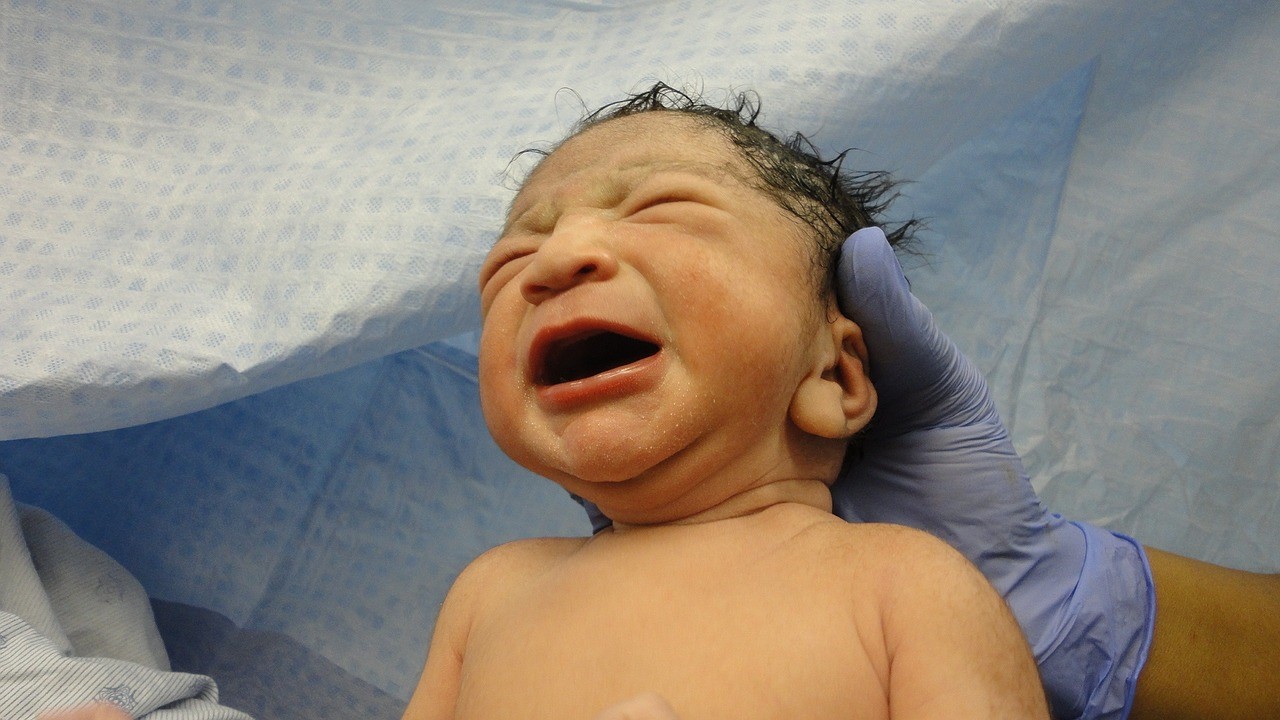|
Method of feeding |
Baby’s symptoms |
Mother’s symptoms |
|
Breastfeeding |
Your baby may:
|
You may:
|
|
Bottle feeding |
Your baby may:
|
You may:
|
Tongue-tie
Tongue-tie is when the strip of tissue attaching the tongue to the floor of the mouth (called the frenulum) is shorter or tighter than normal. Tongue-tie can range from mild to severe. In severe cases, the tongue may be completely fused to the floor of the mouth. Some babies with tongue-tie have no problems at all. They may still be able to latch on and feed well, so not every case of tongue-tie needs treatment.

How common is tongue-tie and what should you do
Tongue-tie is thought to affect approximately one in ten (10%) babies and is more common in boys than girls. About half of babies with a tongue-tie have someone else in the family who also has one.
If you have concerns about tongue-tie speak to a GP, midwife, or health visitor. Your baby may have difficulty with breast or bottle feeding, if they have tongue-tie, however tongue-tie is more likely to cause problems for breastfed babies because they use their tongues in a more complex way than when bottle feeding. It is important that a full breastfeeding assessment is carried out as not all tongue ties will require division, in some instances support with position and attachment can help baby achieve a deeper latch which improves the symptoms.
Note some babies may experience these symptoms due to a reason other than tongue tie.
Diagnosis
If you are struggling with feeding your health visitor and midwife can help assess what the issues may be and what can be done to help. Tongue tie should be assessed and diagnosed by a professional who has been trained in assessing tongue ties. If a healthcare professional suspects tongue tie but is not trained in this area they may refer you to a specialist tongue tie clinic for further assessment.
However, they may use simple assessment tools to identify tongue restrictions and put a plan in place to support feeding. If your baby is between 4 days and 12 weeks old and is still struggling with feeding, you may be referred to the tongue-tie clinic. Or they may use simple assessment tools to determine what care your child needs.
If your are not sure if your baby should have a tongue tie division discuss with your infant feeding co-ordintor, health visitor or GP.
Treatment
If treatment is needed, your baby will have a procedure called a frenulotomy.
This is carried out by specially trained doctors, nurses or midwives and is very quick (it takes a few seconds). The surgery simply involves snipping the short, tight piece of tissue connecting the underside of the tongue to the floor of the mouth.
Treatment is not usually needed if tongue-tie is not causing any problems.
If it's causing problems, such as difficulty feeding in babies, treatment may include:
- breastfeeding or bottle-feeding advice from a trained health professional
- a small surgery to cut the piece of skin connecting the tongue to the bottom of the mouth
In young babies, the surgery is usually done without any anaesthetic. In older babies (and children and adults) the surgery is usually done with general anaesthetic.
After surgery, most babies get better quickly and are able to feed better. The baby should be offered a feed or a pacifier/dummy to suck on if a feed is refused. You should expect to see a white coating over the incision site the following day and full healing process can take 7-10 days
The use of tongue-tie release to improve feeding is supported by the National Institute of Clinical Excellence (NICE). It is considered a safe and simple procedure which demonstrates significant improvements in feeding, particularly breastfeeding, where a reduction in nipple pain and an improved ability to latch on to the breast has been consistently identified
Risks
Possible risks - As with any surgical procedure, there are some possible risks, but these are rare. Risks include:
• excessive bleeding
• infection
• ulcers
• pain
• damage to the tongue and surrounding tissues
Very occasionally, your baby’s tongue-tie may reoccur if their frenulum re-fuses. This may be due to residual frenulum or the development of scar tissue. If this happens, your baby may need a further procedure. The professional carrying out the procedure will explain the risks before they carry out the procedure.
Contact your local healthcare professionals for help
Maternity services
East and North Hertfordshire maternity service (The Lister Hospital): 01438 284 124
West Essex (The Princess Alexandra Hospital) maternity service: 01279 827286
South and West Hertfordshire maternity service (Watford General Hospital): 01923 217 343
Health visitor
Your local Health Visitor in Hertfordshire and West Essex
GPs
Find a GP using this link
More advice and support
NHS choice website: www.nhs.uk/conditions/tongue-tie
Website: www.tongue-tie.org.uk/help-and-information-for-parents
National Breastfeeding Helpline (0300 100 0212) www.nationalbreastfeedinghelpline.org.uk.

